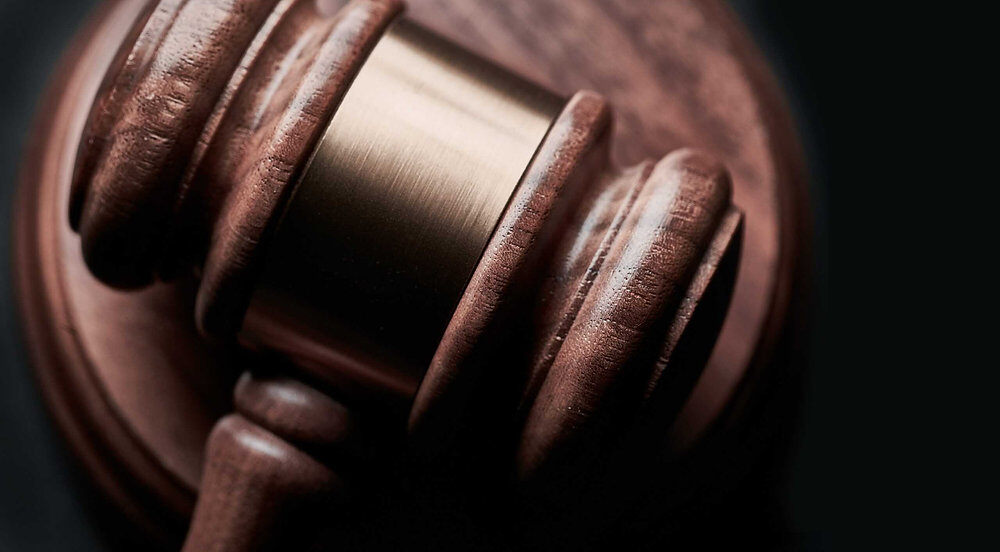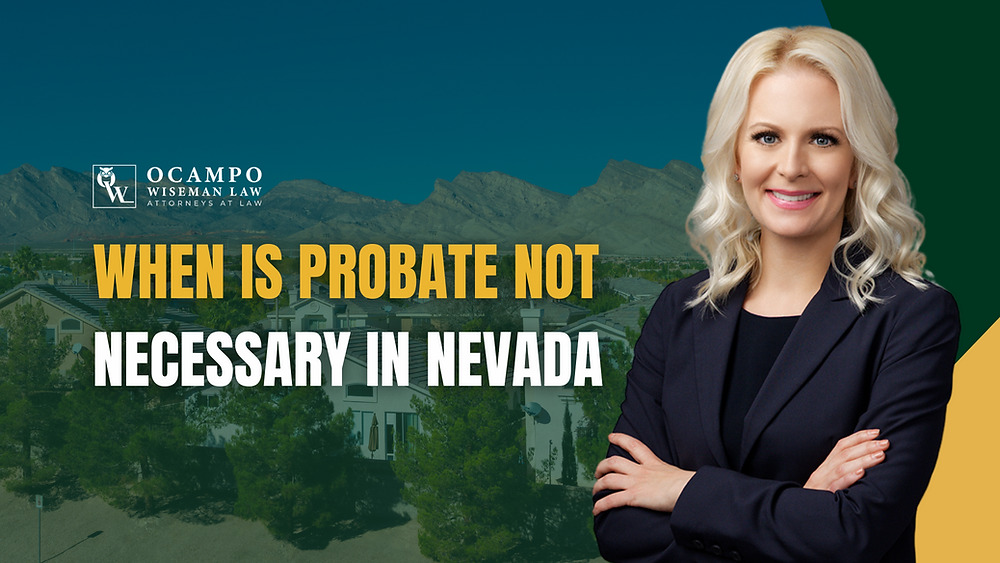Guidance on Managing Assets After the Death of a Loved One
Sarah Ocampo
How Property Ownership Determines What Happens After Death
- Real property outcome depends entirely on how the title is held and what other documents exist in the chain of title
- Property titled solely in the deceased person's name typically requires probate proceedings to transfer ownership
- Bank accounts with death beneficiary designations can transfer directly to beneficiaries without probate
- Accounts without beneficiary designations usually require court proceedings for rightful heirs to access funds
- Proper titling and beneficiary designations are the key to avoiding probate for most assets
Why Property Titles Control Everything After Death
When someone dies, the most important factor determining what happens to their assets isn't their will or their family's wishes—it's how their property is legally titled. This single factor controls whether assets transfer smoothly to beneficiaries or require expensive court proceedings.
Most people don't understand that property titles are like instruction manuals that tell the world what happens when the owner dies. Get the titles right, and assets can transfer quickly and privately. Get them wrong, and families face months or years of probate proceedings.
The confusion and expense of probate often comes as a shock to families who assumed their loved one's assets would simply pass to them automatically. Understanding how different types of ownership work can help families prepare for what lies ahead.
What Happens to Real Estate When Someone Dies
Real estate represents the largest asset for most families, making it crucial to understand how property ownership affects what happens after death.
Property Titled in One Person's Name Only
When real estate is titled solely in the deceased person's name with no other arrangements, the property typically must go through probate before ownership can transfer to heirs. This process can take months or years and requires court supervision.
Joint Ownership with Right of Survivorship
Property owned jointly with rights of survivorship automatically transfers to the surviving owner without probate. This is common for married couples but requires proper legal documentation to ensure survivorship rights exist.
Property Held in Living Trusts
Real estate titled in the name of a living trust can transfer according to trust terms without probate proceedings. The successor trustee can handle the transfer privately according to the trust document instructions.
Life Estate and Enhanced Life Estate Deeds
Special deed arrangements can allow property to transfer automatically to designated beneficiaries while allowing the original owner to retain control during their lifetime.
How Bank Accounts and Financial Assets Transfer After Death
As discussed in estate planning consultations, financial accounts offer more flexibility than real estate for avoiding probate through proper beneficiary planning.
Accounts with Death Beneficiary Designations
Most banks and financial institutions allow account holders to name death beneficiaries who can claim account funds directly upon the owner's death. These designations override will instructions and avoid probate entirely.
Payable on Death (POD) and Transfer on Death (TOD) Accounts
POD accounts for bank deposits and TOD accounts for investments allow direct transfer to named beneficiaries without court involvement. The beneficiary simply needs to present identification and a death certificate.
Joint Account Ownership
Joint bank accounts with rights of survivorship automatically belong to the surviving account holder, avoiding probate. However, this approach requires careful consideration of tax and control issues during the original owner's lifetime.
Accounts Without Beneficiary Designations
Bank accounts and investments without proper beneficiary designations typically require probate proceedings before families can access the funds, even for basic expenses like funeral costs.
Why Chain of Title Matters for Real Estate
The "chain of title" refers to the complete ownership history of real estate, including all deeds, liens, and other documents that affect ownership rights.
Reviewing the Complete Title History
Sometimes previous owners created arrangements that affect what happens when the current owner dies. These might include life estates, remainders, or other ownership arrangements that aren't obvious from the current deed.
Hidden Ownership Arrangements
Previous deeds might have created rights for people other than the current apparent owner. These arrangements can surprise families and affect inheritance rights.
Title Insurance and Ownership Questions
Title insurance policies and previous title reports can reveal ownership arrangements that affect inheritance. Professional title review helps identify these issues before they create problems.
Correcting Title Problems Before Death
Many title problems can be corrected while the owner is still alive, but become much more complicated and expensive to fix after death.
The Critical Role of Beneficiary Designations
Beneficiary designations are often the simplest and most effective way to avoid probate for financial assets, but they require regular maintenance and updates.
What Assets Can Have Beneficiary Designations
Bank accounts, investment accounts, retirement accounts, life insurance policies, and many other financial assets can have death beneficiary designations that allow direct transfer to named beneficiaries.
Primary and Contingent Beneficiaries
Most accounts allow you to name primary beneficiaries who receive assets first, and contingent beneficiaries who receive assets if the primary beneficiaries predecease you or can't be located.
Keeping Beneficiary Designations Current
Life changes like marriage, divorce, births, and deaths require updates to beneficiary designations. Outdated designations often result in assets going to unintended recipients.
Beneficiary Designations Override Wills
Properly completed beneficiary designations transfer assets regardless of what your will says. This can create conflicts if your will and beneficiary designations name different people.
Common Property and Account Ownership Mistakes
Many families discover too late that their loved one's property ownership choices created unnecessary probate proceedings and family complications.
Assuming Wills Control Everything
Wills only control assets that don't have other transfer mechanisms. Property titles and beneficiary designations often determine asset distribution regardless of will instructions.
Forgetting to Update Beneficiary Designations
Many people name beneficiaries when they open accounts but never update them as life circumstances change. This can result in assets going to ex-spouses, deceased relatives, or other unintended recipients.
Not Understanding Joint Ownership Implications
Adding someone as a joint owner for convenience can create unintended tax consequences and give them immediate ownership rights you may not have intended.
Mixing Different Ownership Approaches
Using inconsistent ownership approaches across different assets can create confusion and conflicts about your true intentions for asset distribution.
How to Determine If Assets Will Require Probate
Understanding whether specific assets will require probate helps families prepare for the complexity and cost of estate administration.
Assets That Typically Avoid Probate
Property held in living trusts, accounts with beneficiary designations, jointly owned property with survivorship rights, and assets with transfer-on-death designations usually avoid probate.
Assets That Usually Require Probate
Property titled solely in the deceased person's name, accounts without beneficiary designations, and personal property without special ownership arrangements typically require probate proceedings.
Gray Area Assets
Some assets may or may not require probate depending on their value, how they're owned, and state-specific laws. Professional legal advice helps clarify these situations.
Planning to Minimize Probate Assets
Strategic estate planning can structure ownership to minimize or eliminate assets that require probate, saving families time and money while maintaining privacy.
What Families Can Do to Avoid Probate
Proper planning during your lifetime can eliminate most probate requirements and allow assets to transfer quickly and privately to your beneficiaries.
Review and Update All Property Titles
Working with estate planning professionals to review how all property is titled and making appropriate changes can eliminate most probate requirements.
Complete Beneficiary Designations for All Accounts
Ensuring that all bank accounts, investment accounts, and other financial assets have current beneficiary designations provides simple probate avoidance.
Consider Living Trust Planning
Living trusts can hold multiple types of assets and allow comprehensive estate planning that avoids probate while maintaining control during your lifetime.
Regular Estate Plan Reviews
Life changes require updates to property ownership and beneficiary designations. Regular reviews ensure your estate plan continues to work as intended.
Related Estate Planning Resources
- [How to Avoid Probate with Living Trusts Complete Guide]
- [Beneficiary Designations vs Wills Which Controls Your Assets]
- [Property Ownership and Estate Planning What You Need to Know]
Schedule Your Estate Planning Consultation
If you want to ensure your property and accounts transfer smoothly to your family without probate complications, consider scheduling a consultation with an experienced estate planning attorney who can review your current ownership arrangements and recommend improvements.
Frequently Asked Questions About Property and Accounts After Death
Does having a will avoid probate for my property?
No, wills actually require probate proceedings to be legally effective. Only certain ownership arrangements like living trusts, joint ownership, and beneficiary designations avoid probate.
Can I add my adult child to my bank account to avoid probate?
While this can avoid probate, it also gives your child immediate access to and ownership of the account, which may create tax and control issues you didn't intend.
What if my beneficiary dies before me?
This is why it's important to name contingent beneficiaries and keep designations current. Without backup beneficiaries, assets may end up in probate even with beneficiary designations.
How do I know how my property is currently titled?
For real estate, check your deed or contact a title company. For accounts, contact your financial institutions directly to confirm ownership type and beneficiary designations.
Summary: Property Ownership Controls Your Family's Future
How your property is titled and whether your accounts have beneficiary designations determines your family's experience after you're gone. Proper ownership arrangements allow smooth, private asset transfers while poor planning guarantees expensive probate proceedings.
The good news is that most probate problems can be prevented with proper planning during your lifetime.




